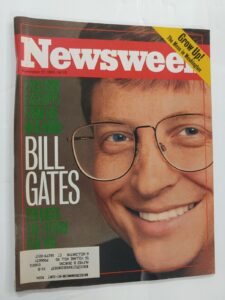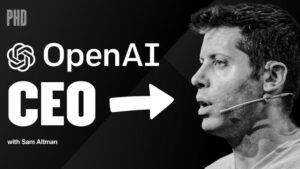 For the last year the Cloud Czars have been playing The Great Game with AI.
For the last year the Cloud Czars have been playing The Great Game with AI.
The term, coined in the 19th century around the imperialism of European powers, refers to tech industry leaders jostling for power around a paradigm shifting technology.
Artificial Intelligence is such a technology.
The Background
Having covered tech for over 40 years, I’ve seen this before. The best example is the battle between IBM and Microsoft over graphical interfaces. It was won by Windows and IBM never recovered. At the same time, Microsoft was battling with Apple over this issue, because Apple already had a GUI. Again, Microsoft prevailed, thanks to its OEM alliances.
 But government does have a role to play in the Great Game. The Clinton Administration kept Microsoft from dominating the early Internet age with its antitrust suit. They were successful, signing a “consent decree” that hobbled Microsoft for over a decade. The decree wound up filling Microsoft with PR men and lawyers whose job it was to say “no” to innovation. I saw this for myself in my brief time as an analyst.
But government does have a role to play in the Great Game. The Clinton Administration kept Microsoft from dominating the early Internet age with its antitrust suit. They were successful, signing a “consent decree” that hobbled Microsoft for over a decade. The decree wound up filling Microsoft with PR men and lawyers whose job it was to say “no” to innovation. I saw this for myself in my brief time as an analyst.
The Great Game can destroy even the biggest companies and turn startups into players. This happened during the last decade, in the clouds. Facebook, now Meta, went “all-in” on cloud, while bigger companies like GE, IBM, and AT&T held back. We know how that worked out.
You have no choice but to play the Great Game if you’re to remain a player.
Whose Game Is It?


There’s another way to define the game. That’s by application. Whose models, and data sets, are delivering the greatest productivity to the greatest number of people in the marketplace? Here I look at companies like Adobe, Salesforce and ServiceNow, Adobe is transforming corporate productivity with its new Generative AI applications. Salesforce and ServiceNow are building models using clients’ own data to deliver results.
This is what you need to know, however.
AI alone will win nothing for a customer. Palantir can’t keep Ukraine from being outgunned, and he can’t keep Israel from falling to its own hubris. This may be the most important lesson of the Great Game, when applied to technology. It’s the users who have the most power over it, for good or for ill.









